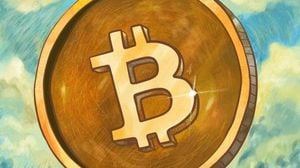Pepe the Frog, originally created by artist Matt Furie as a carefree character for his comic series Boy's Club, has undergone an incredible transformation. Once embodying light-hearted humor, this green amphibian has become entangled with various global movements, financial markets, and controversial ideologies, illustrating how internet culture can reshape symbolism over time.
Initially gaining prominence on platforms like 4chan and Reddit, Pepe was loved across the digital space for his relatable expressions and the phrase, "feels good man." By the late 2000s, he had evolved beyond comic strips to become one of the internet’s most versatile memes, showcasing emotions ranging from joy to existential despair. This iconic status was solidified as countless variations of Pepe proliferated, each adding depth to his digital legacy.
Nevertheless, Pepe's light-hearted charm faced severe challenges starting from the mid-2010s. Contentious associations emerged as extremist groups began utilizing his image, effectively co-opting the character for negative agendas. This alarming shift prompted the Anti-Defamation League (ADL) to classify some depictions of Pepe as hate symbols, tarnishing the original intent and innocence behind his creation. Furie himself expressed concern, undertaking legal actions to safeguard his character and issuing poignant messages through art, including the symbolic portrayal of Pepe's "death" to counteract the misuse.
Yet, amid these dark times, the internet proved its remarkable ability for cultural redemption. During the 2019-2020 protests in Hong Kong, demonstrators adopted Pepe as a symbol of resistance and unity against authoritarianism, reclaiming the character's meaning far from its prior associations. This resurgence stirred positivity within online communities, with Furie expressing gratitude for the phoenix-like revival of his creation. The hashtag #SavePepe encapsulated the collective effort to restore Pepe to his roots—seen once again as a harbinger of humor, connection, and peace.
Pepe's saga didn't end with protests; he has surprisingly evolved within the cryptocurrency discourse as well. Recently, notable figures like Elon Musk have engaged with Pepe, featuring him as "Kekius Maximus" on social media platforms. This playful integration sparked discussions among cryptocurrency enthusiasts, leading to the inception of projects such as "PepeCoin"—testament to the frog’s enduring adaptability and relevance.
The dynamic evolution of Pepe embodies the fluidity of digital culture, reflecting how symbols can cross various terrains, adapting to diverse communities and causes. Today, Pepe stands not just as a meme, but as a cultural artifact representing struggle, creativity, and collaboration on the internet. This narrative highlights both the potential pitfalls of viral symbols and the resilience of cultural meanings, illustrating the complex interplay between identity and digital landscapes.
Pepe's loveable nature has persisted, showcasing how he can still represent joy and resistance against oppression. His transformation from carefree comic character to meme legend and now to protest icon speaks volumes about society's capacity for reinterpretation rooted firmly within the communal spirit of online culture.
At its forefront, Pepe the Frog’s evolution mirrors the unpredictable essence of the internet, whereby collective creativity can reshape narratives from distress to empowerment. The arrival of PepeCoin and his newfound status as meme-driven cryptocurrency prevalence only confirm his strength as a cultural symbol and the undying allure of internet creativity.
Today, Pepe's image is not solely about humor or absurdity—it's about unity and resilience. From protesting against political oppression to standing as a digital finance figurehead, this simple frog has left its mark on the interaction between culture and the rapidly changing digital world we inhabit.
Furie's advocacy and the creativity of internet users restore hope not just for Pepe but for all symbols subjected to misinterpretation. Pepe the Frog is now more than just internet folklore; it's a reminder of the cultural shifts born out of communal efforts and the resilience of digital symbols.



